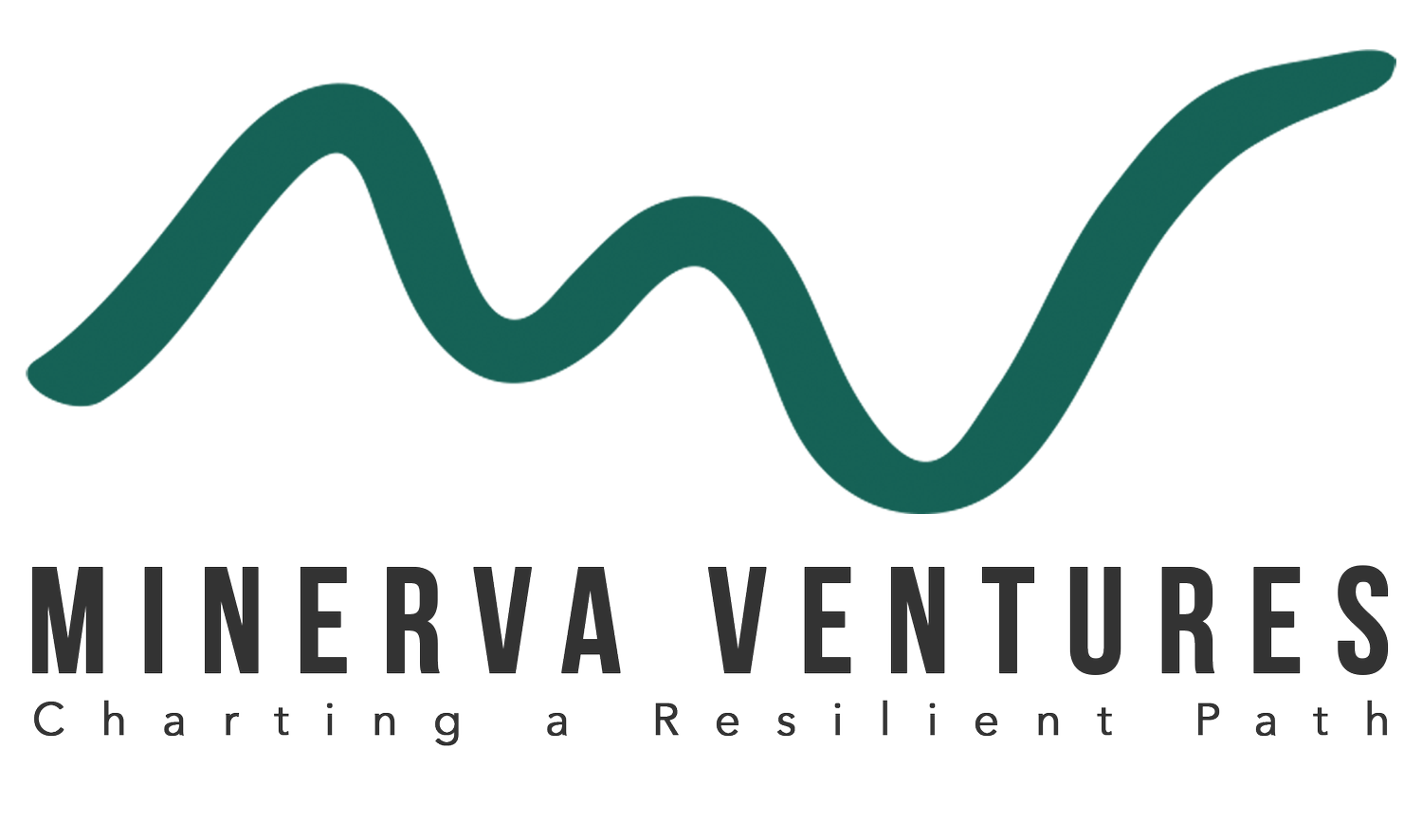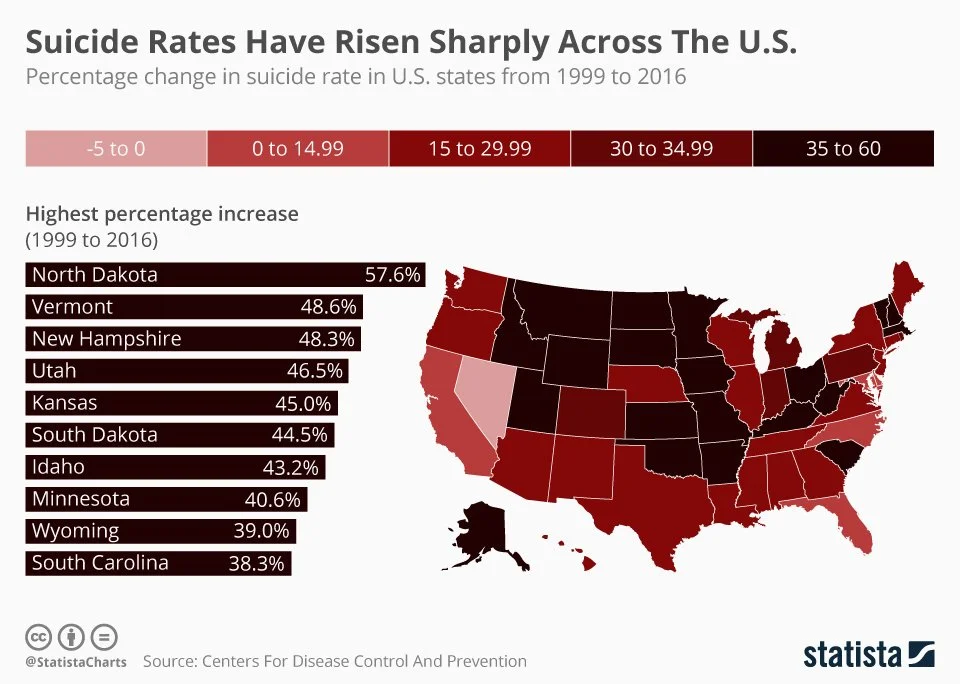Hope & Despair
Last week two cultural icons took their own lives: Kate Spade and Anthony Bourdain. Statista published a startling graph based on data from the U.S. Centers for Disease Control and Prevention showing alarming increases in suicides across the country. Only Nevada shows no increase and one wonders if they have a different reporting system than the other states...
More than half of the people who died by suicide did not have a known mental health condition.
The CDC website goes on to provide an analysis of how people die (guns are involved in a large percentage of deaths) and possible reasons. They also provide recommendations for state and local government, health care providers and communities. They have resources for people experiencing despair and thoughts of suicide.
This issue is personal to me. I almost lost a close family member to attempted suicide two years ago. That person is on a path to well-being and leading a meaningful life, but it was a harrowing journey over many years.
This data indicates that we have an epidemic of despair in this country. Death by suicide is the tip of the iceberg with addiction and substance abuse, family violence and under-treated mental illness being further symptoms. Fundamental loneliness and financial stress are also root causes that need systemic responses.
When someone is struggling, they feel, and often their family members feel that it is an individual failure. But when looked at from a societal perspective, it is clear that each individual is also part of a larger system that is failing to make each person feel cared for and connected to the larger community. Our technology (social media, the rise of automation) can make us feel more lonely and more worried about our ability to earn a living and afford to live in the communities where we used to belong.
Taking a public health perspective, it is not enough to treat the symptoms of a person with cholera, the community must also change their sanitation practices to stop the spread of an epidemic. The same is true for the epidemic of isolation and loneliness that people experience.
Due to a combination of respect for the privacy rights of the person who is struggling and the stigma associated with needing help, too many individuals and families are left to cope on their own. Clearly, many are choosing to end their pain with a permanent solution to what could be ameliorated with help from others. Loved ones may feel a sense of failure that their beloved is suffering and may not know where to turn for help. Fellow sufferers could help one another if shame did not inhibit them from reaching out. The medical profession is not uniformly knowledgeable or equipped to provide help, as providers rush from patient to patient. Medication may lessen pain, but it does not help the person build skills or connections to the community to overcome the despair and hopelessness that they are experiencing.
There are systemic strategies to reduce isolation and loneliness and to increase connection and meaning. Co-housing brings people of all ages (or of similar ages) together to share a combination of private and public living areas, creating opportunities for shared meals, collective problem-solving and social contact. People need meaningful work that pays enough to cover the cost of living. Children need good schools and company after school if their parents are working. LGBTQ people and others who feel marginalized need acceptance and freedom from bullying or ostracization. People with mental health and/or substance abuse need comprehensive and affordable care, as well as help in addressing the root causes that led them to become addicted.
Garden and apartments. Mountain View Co-Housing California
Community resilience can be a shared goal that will help us prepare for the dire impacts of climate change, such as fires, floods, extreme heat, and drought. It can also help reduce isolation and loneliness as neighbors come together to prepare for emergencies, to reduce their carbon and environmental footprints and to improve their quality of life. Share food production in community gardens, trading tools, and sharing rides are all ways that people can get to know one another. Helping others builds a sense of meaning and purpose, thereby diminishing despair and isolation.
Advice from the CDC:
Everyone can
Ask someone you are worried about if they’re thinking about suicide.
Keep them safe. Reduce access to lethal means for those at risk.
Be there with them. Listen to what they need.
Help them connect with ongoing support like the Lifeline (1-800-273-8255).
Follow up to see how they’re doing.
Find out how this can save a life by visiting: www.bethe1to.com.
Reach out your hand to someone. Share your heart. Be kind to one another. Cultivate compassion for yourself and for others. We are all in this adventure of life together.


